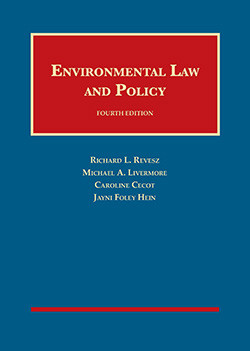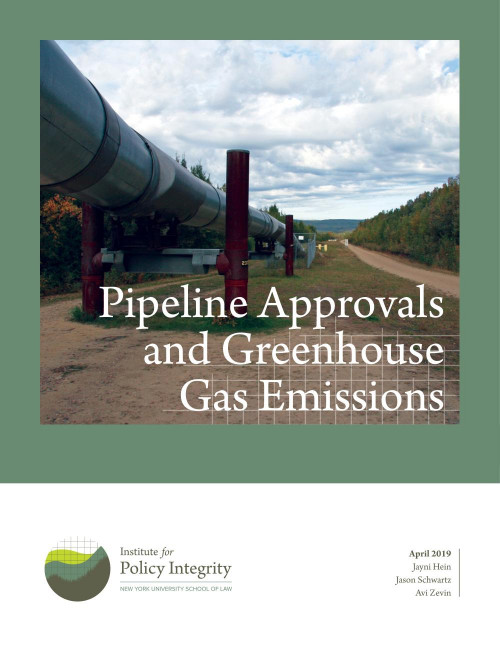-
Comments to the Army Corps of Engineers on the Pebble Mine Project
We submitted joint comments on the Army Corps of Engineers’ environmental assessment of the Pebble Mine Project in southwest Alaska. The Corps quantifies greenhouse gas emissions from the project but fails to provide a monetized estimate of the climate damages those emissions will produce.
-
Comments on Caballo West Federal Coal Lease
The Office of Surface Mining and Reclamation Enforcement (OSM) issued its environmental assessment of extending the Caballo Mine West Tract federal coal lease. The mining plan would extend the life of the mine by approximately nine years, from 2042-2051, and increase the amount of coal mined from an average of 10.1 million tons per year to approximately 13.5 tons per year. Despite quantifying over 23 million tons of yearly carbon dioxide equivalent emissions, OSM does not include a monetized estimate of the climate damages those emissions will produce. We submitted joint comments asking that OSM use the social cost of greenhouse gases to better weigh the real-world impacts of potential coal leasing.
-

Environmental Law and Policy, 4th Ed.
This casebook emphasizes environmental policy, as well as the structure and details of the federal environmental statutes. It focuses students’ attention on how tradeoffs between environmental goals and social goals are resolved in different and difficult contexts. The book has been updated to reflect new developments in the law of natural resource management, water pollution, and climate change.
-
Amicus Brief in Atlantic Coast Pipeline Case
If constructed, the Atlantic Coast Pipeline Project would be responsible for greenhouse gas emissions resulting in over $1.3 billion per year of climate damages. The Federal Energy Regulatory Commission’s (FERC) analysis estimates the quantity of the project’s emissions but does not analyze the context, intensity, or significance of the incremental climate damages they will cause. We submitted an amicus brief to the U.S. Court of Appeals for the D.C. Circuit that explains how FERC’s failure to monetize the project’s climate damages using Social Cost of Carbon (SCC) estimates is arbitrary.
-
Court Overturns Repeal of Valuation Rule
The Institute for Policy Integrity helped contribute to a significant legal victory, as a federal district court in California today overturned the Trump administration’s repeal of the Interior Department’s Valuation Rule. The Valuation Rule sought to ensure that states and the federal government receive the full value of royalties due for oil, gas, and coal extracted from public lands. While the administration has lost numerous court cases related to deregulation, this is the first decision overturning a repeal of a rule. Policy Integrity submitted an amicus brief in the case and comments on the original rule and the repeal efforts.
In our amicus brief, we argued that the repeal was unreasonable because of the agency’s inaccurate assessment of the repeal’s economic impact. District Judge Saundra Brown Armstrong’s opinion echoed some of the arguments from our brief and cited an academic article on deregulation written by Bethany Davis Noll and Denise Grab.
-

Pipeline Approvals and Greenhouse Gas Emissions
In light of growing public awareness of the environmental effects of pipeline projects, the Federal Energy Regulatory Commission (FERC) has faced competing pressures regarding how to balance the need for new natural gas pipelines with their environmental consequences. Concerns about greenhouse gas (GHG) emissions and resulting climate change effects have become a flashpoint in the debate. Our report examines the legal context surrounding FERC’s evaluation of the environmental impacts of proposed interstate natural gas pipelines. We look at FERC’s obligations under the Natural Gas Act and the National Environmental Policy Act, as well as potential improvements the agency can make to its analyses to better inform policy makers and the public about the impacts of proposed projects.
-
Comments to FERC on Adelphia Gateway Pipeline Project
The Federal Energy Regulatory Commission (FERC) recently released an Environmental Assessment (EA) for the Adelphia Gateway Project. FERC quantifies nearly 90,000 tons per year of direct carbon dioxide-equivalent emissions, but offers no meaningful analysis of the pipeline’s climate impacts. We submitted joint comments urging FERC to better weigh the significance of project’s impacts using the social cost of greenhouse gases methodology.
-
Comments to FERC on Annova Natural Gas Project
In the Federal Energy Regulatory Commission’s (FERC) Environmental Impact Statement (EIS) for the Annova LNG Brownsville Project, the agency quantifies over 350,000 tons per year of direct operational carbon dioxide-equivalent emissions from the proposed natural gas terminal. But FERC fails to provide meaningful analysis of the resulting climate impacts. We submitted joint comments urging FERC to better contextualize the project’s impacts using the social cost of greenhouse gases methodology.
-
Amicus Brief on Climate Impacts of the PennEast Pipeline Project
In January, the Federal Energy Regulatory Commission (FERC) authorized the construction and operation of the PennEast Pipeline Project, a 116-mile natural gas pipeline between Pennsylvania and New Jersey and associated facilities. FERC’s Environmental Impact Statement (EIS) showed that the project will result in an increase in greenhouse gas emissions but did little more than quantify those emissions, failing to fully analyze and consider the climate impacts of the project. We submitted an amicus brief to the U.S. Court of Appeals for the District of Columbia Circuit that demonstrates how FERC could have used the Social Cost of Carbon to analyze the pipeline’s climate impacts.
-
Comments to FERC on Rio Grande Natural Gas Project
The Federal Energy Regulatory Commission (FERC) prepared a Draft Environmental Impact Statement (DEIS) for the Rio Grande LNG Project. Despite quantifying over 8 million metric tons of carbon dioxide-equivalent emissions per year from operations, FERC does not account for the climate effects of these emissions. We submitted joint comments that offer a detailed rejection of FERC’s arbitrary and misleading rationale for failing to monetize the project’s climate effects. We urge the agency to apply social cost of greenhouse gases estimates.
Viewing recent projects in Natural Resources




